This is the perfect arena to meet experienced researchers and other PhD students working in the MS-field. We will give you the ability to practice your conference and presentation skills in a friendly atmosphere. Now it’s your chance to present your research ideas, semi-finished instruments and products, first study results etc. and get input from well-known and experienced researchers in the MS-field! We are looking forward to meet you all!
The goal of this newly developed program especially for PhD students is to network and to have the opportunity to share knowledge with other PhD students and a panel of experts. We encourage students to attend from the very start of their research project to the last year of their PhD, as this gives them the opportunity to develop their professional network and improve their presentation skills over time, and to receive feedback on their projects at different stages.
|
Registration fees
EUR excl VAT (Eur incl 21% Dutch VAT)
|
Early bird registration fee until Friday 9 March 2018 |
Late registration fee until Sunday 27 May 2018 |
On-site registration fee as from Monday 28 May 2018 |
|
RIMS Members
|
free | free | free |
| non-RIMS Members | € 30 (€ 36 incl VAT) |
€ 35 (€ 42,5 incl VAT) |
€ 40 (€ 48,5 incl VAT) |
In preparation of the session, participants have been asked to provide us with a short summary of their PhD trajectory. Please find below the input received so far.
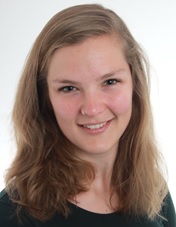 |
Kim-Charline Broscheid PhD student at Otto-von-Guericke-Universität Magdeburg, Germany During my master studies 2014-2016, I laid the base for the further research direction of my PhD. From the very beginning, I worked as a research assistant and conducted several studies focusing on quantifying fatigability by analyzing gait (inertial measurement units (IMUs) based Attractor Method) in people with Multiple Sclerosis (pwMS). The projects were supervised by Prof. Vieten (University Konstanz) and by Prof. Dettmers (Medical Director Neurorehabilitation) due to the cooperation with the Kliniken Schmieder. From October 2016 until May 2017, I continued the projects at the clinic as a PhD student. In July 2017, I decided to change to the Otto-von-Guericke-University Magdeburg due to private reasons and lack of funding. Here, I sustained in the area of MS and gait analysis restarting my PhD. The first studies will be still focused on quantifying fatigability in pwMS. The level of gait automaticity will be assessed by applying IMUs to determine gait characteristics (such as step length or minimum toe clearance) but also by using near infrared spectroscopy (fNIRS). Both in combination, the classical gait parameters and the prefrontal activation while walking under normal and dual-task condition, may result in a better understanding of the underlying mechanisms of fatigability. Link to publications |
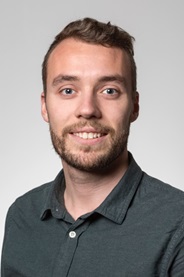 |
Morten Riemenschneider PhD student at Aarhus University, Denmark Main supervisor: Associate professor, Ulrik Dalgas Exercise physiologist and working within the field of exercise therapy in MS. My PhD project focusses on the potential disease modifying and neuroprotective effects of exercise in MS. Specifically early in the disease course. The project is a national “multi-center” study recruiting from a number of Danish MS clinics and with training carried out in customized training facilities across the country. Recruitment for the study has just begun, and I am looking forward to present and exchange thoughts on the topic at the PhD session in Amsterdam. |
 |
Ellen Christin Arntzen PhD student at Nordland Hospital Trust, Norway Title: Innovative physiotherapy and continuity of care in people with multiple sclerosis: a randomized controlled trial and a qualitative study. Description of PHD-trajectory: This PHD project is a mixed methods study examining effect (Randomized Controlled Trial) of a six weeks long GroupCoreDIST-intervention compared to standard care on trunk control, balance, walking, activity and quality of life; and exploring how individuals experience (Qualitative Research Interviews) participation in GroupCoreDIST and standard care. GroupCoreDIST is a new group-based core stability and balance intervention for individuals with MS. The training highlights underlying aspects of balance, is performed in groups of three and led by a physiotherapist. 80 individuals with multiple sclerosis participated in the Randomized Controlled Trial, 40 were randomly allocated to the GroupCoreDIST-intervention and 40 followed standard care. The GroupCoreDIST trainings were conducted in six municipalities in Norway for 60 minutes, three times per week for six weeks. Assessments measuring trunk control, balance, walking, quality of life and activity were undertaken at baseline, weeks 7, 18 and 30. The qualitative research interviews were conducted at weeks 7 and 30. A strategic sample of 13 individuals from the GroupCoreDIST group, and 13 individuals from the standard care group were interviewed twice with open ended questions guided by a semi-structured interview guide. The whole study was completed in 2016. Some of the results have been analysed, one paper is in review and one will be submitted soon. Future plans: The plan is to submit the last paper within the summer of 2018 and to submit the thesis during spring 2019. The GroupCoreDIST intervention is being further developed and I would like to both do further research (Postdoc hopefully) and to contribute in implementing the intervention in to clinical practice. Link to publications |
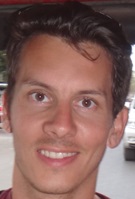 |
Martin Langeskov Christensen PhD student at Aarhus University, Denmark In my PhD I am investigating how aerobic exercise affects brain volume, specific brain regions, neurotrophins and cognition in persons with MS. The hypotheses are that aerobic exercise can slow down brain atrophy, increase the size of hippocampus, upregulate the secretion of neurotrophins and improve cognitive performance in people with MS. The study is a 6 month single blinded randomized (stratified for gender) controlled trial. The exercise intervention consists of 6 months of aerobic training performed two times a week at moderate to high intensity (progressively increasing) and under supervision. Eighty-six patients have been included and data collection is ongoing. |
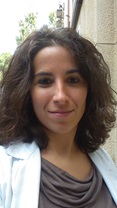 |
Ambra Mara Giovannetti PhD student at the University of Queensland and hosted at the Foundation IRCCS Neurological Institute “Carlo Besta”, Italy. Research project working title Resilience Training for People with Multiple Sclerosis (MS): Development, and Evaluation of the Australian READY Program in Italy (READY It MS Project) Description of the project Living with multiple sclerosis (MS) can be a consistent source of stress. People with low resilience risk experiencing psychological distress and interpersonal difficulties. Pakenham and colleagues (Burton, Pakenham & Brown, 2010) created an ACT based group resilience training intervention called READY(REsilience for every DaY), and developed a specific version for MS. This project aims to adapt the “READY for MS” to Italians with MS, evaluate its efficacy in improving their QoL, and training psychologists working in the field of MS in Italy. The project is composed of three phases. 1) Translation into Italian of the “READY for MS” manuals and linguistic validation of the Drexel Defusion Scale (DDS) and the Comprehensive assessment of Acceptance and Commitment Therapy processes (CompACT). 2) A single blind RCT with a nested qualitative study will be performed at Besta Institute (Italy) to compare “READY for MS” with relaxation (ratio 1:1). Thirty-seven participants will be enrolled. Quality of life (MSQOL-54) is the primary outcome. Secondary outcomes include: distress (HADS; PSS), resilience (CDRISC-25), mindfulness (MAAS), values (VLQ), acceptance (AAQ-II), defusion (DDS), psychological flexibility (CompACT), individualized QoL (SEIQOL-DW). Data will be collected at baseline (T0), 12 weeks, (T1) and 24 weeks (T2). Data will be analysed according to the intention-to-treat principle using multiple regression analysis. Half of the participants assigned to the “READY for MS” will be interviewed to evaluate intervention weaknesses and strengths. Thematic analysis will be used for qualitative data. 3) Italian psychologists of the MS network will be trained in the ACT and be READY for MS Program. Participants’ satisfaction, knowledge and psychological flexibility will be measured before and after the training. Resources required to complete the project (for example, expertise, facilities, funding, travel). The project has been supported by FISM (Fondazione Italian Sclerosi Multipla). Prof. Kenneth Pakenham’s supervision will be fundamental to assure a correct application of the “READY for MS” program and an adequate development of The ACT and be READY for MS Training Program. Dr. Alessandra Solari will mentor me during all the duration of the project with particular attention to the methodological issues. Link to publications |
 |
Maaike Ouwerkerk PhD student at Nieuw Unicum and VU university Medical Centre, The Netherlands Project title: MS Care-NU ‘The effects and costs of a multidisciplinary symptomatic treatment strategy on quality of life of people severely affected by MS’ The study is a 1.5-year longitudinal observational study with a mixed-methods design and aims to obtain insight into the needs, functioning and quality of life and changes in these outcomes of people with severe MS who are treated in the residential- and facility centre Nieuw Unicum (NU) and to identify the experiences, facilitators and barriers using the health care services of NU. In addition, the costs of the treatments in NU will be determined. In the current climate of economic rationalization and budget restrictions in the Dutch health care system, there is an increasing pressure to show the effects and costs of interventions as part of routine clinical practise. In the Netherlands NU delivers continuous, systematic, long-term multidisciplinary symptomatic treatment for patients in their later stages of Multiple Sclerosis (MS) and their caregivers. NU offers four types of health care services. MS care at a Distance is an online video coaching program including advice and support provided by an MS nursing consultant. In a multidisciplinary assessment individual tailored treatment advice is given to the patient and referrer by a team of medical and allied health care professionals. To optimize health and functioning and/or to offer relief to the caregiver at home a short-stay residential care is organized. Long-stay residential care is provided, when living in the community is no longer possible. However, the needs, physical and social well-being of this population have not been studied in detail. Therefore, it remains unknown whether the health care services of NU are adequately tailored to the needs of these patients. Furthermore, the effects in terms of quality of life and functioning and costs of the health care services provided by NU are unclear. The study population is all newly referred patients in NU with a diagnosis of MS and their caregivers. At the moment, 13 patients and 7 caregivers have been included and data collection is ongoing for three years. |
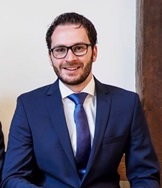 |
Dennis van Gorp PhD student at National MS Foundation, The Netherlands The MS@Work study My name is Dennis van Gorp and I’m currently working as a PhD student on the MS@Work study. The MS@Work study is an observational, multicenter prospective cohort study that examines predictors of (changes in) employment status and work absenteeism in relapsing-remitting MS patients. We follow a group of 300 patients with relapsing-remitting MS from 16 outpatient clinic in the Netherlands over a period of three years. At baseline and after 6 months, 1, 2 and 3 years, participants are asked to complete online questionnaires, and undergo neurological and neuropsychological examinations. Possible factors, like (perceived) cognitive problems, fatigue, depression, personality, coping and physical disability are factors which could be addressed by physicians, psychologists and vocational rehabilitation therapists. Their combined effort, including early information provision and fitting interventions, should result in better work participation and improvement of quality of life for the MS patients. Link to publications |
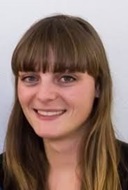 |
Leonie Ruhaak PhD student at VU university Medical Centre and Nieuw Unicum, The Netherlands Project title: Communication and dysphagia in multiple sclerosis Description of the project: This research project focuses on diagnostics and treatment of communication (i.e. dysarthria and/or language problems) and swallowing disorders (dysphagia) in MS. The project currently consists of three studies: 1.Dysphagia in MS frequently goes undetected. Therefore Bergamaschi and colleagues (2008) developed a 10-item questionnaire to assess DYsphagia in MUltiple Sclerosis. The current study was designed to assess the accuracy of the DYMUS compared with fiberoptic endoscopy of swallowing (FEES) in diagnosing dysphagia in individuals with MS and to determine its reproducibility. 67 MS patients have participated. 2.In a study of 2007 conducted at Nieuw Unicum positive indications were found for the use of neuromuscular electrical stimulation to improve swallowing function in MS (Bogaardt et al., 2007). The aim of the present study is to investigate the optimal neurophysiological parameters in neuromuscular electrical stimulation in the treatment of dysphagia in MS. 3.Funded by the RIMS Grant Programme 2017 we conduct a systematic review on dysarthria in MS in order to develop therapy guidelines for the diagnostics and treatment. Collaboration with: Francesca De Biagi and Fredrik Sand. Future plans: In future I hope to conduct an RCT of the effect of neuromuscular electrical stimulation in the treatment of dysphagia in MS. |
 |
Karin Riemann-Lorenz PhD student at University Medical Center Hamburg-Eppendorf, Germany PhD Topic The influence of lifestyle on MS disease course - Evidence, views and behavior of those affected and factors influencing the adherence to lifestyle changes The goal of my PhD project is to investigate the scientific evidence of lifestyle habits or nutritional and physical activity interventions on MS disease course and symptoms. Moreover we look at factors influencing long-term adherence to a physically active lifestyle. The perspective and the behavior of those affected will be explored in order to take this into account in the development of evidence-based patient education or training interventions. What I already did: • Published a paper on “Dietary Interventions in Multiple Sclerosis: Development and Pilot-Testing of an Evidence Based Patient Education Program” http://journals.plos.org/plosone/article/comments?id=10.1371/journal.pone.0165246 • Qualitative interview study with MS experts to explore the barriers and facilitators of long-term adherence to physical activity from an expert´s point of view • Development and application of a comprehensive survey questionnaire about barriers and facilitators of long-term adherence to physical activity among German pwMS Currently I am analyzing and publishing my data. Also I am involved in the development of an e-health intervention for pwMS, which among other disease-related topics will provide evidence-based information about physical activity and nutrition. Collaboration In my physical activity project I collaborate with Susan Coote Coote and Bláthin Casey from Ireland, Robert Motl from the US and René Streber from Germany. Future plans In the future I would like focus my work on diet and multiple sclerosis, because originally I am a nutritionist and my experience is, that patients have a lot of unanswered questions regarding nutrition an MS. Maybe there are people who want to collaborate? |
 |
Andrea Giordano PhD student at Unit of Neuroepidemiology, Foundation IRCCS Neurological Institute C. Besta, Milan. Department of Psychology, University of Turin; all in Italy Title: Development of a Multidimensional Computerized Adaptive short form of the Multiple Sclerosis Quality of Life-54 (MSQOL-54-MCAT): an international collaborative project. A short description of your PhD-trajectory Existing MS health-related quality of life (HRQOL) tools are available in paper-pencil format and for most of them score calculation is burdensome, while score interpretation may not be straightforward. Further, the existing approach leads to a substantial amount of missing values in the scoring, which limits the reliability of the results obtained from the downstream statistical analyses. The 54-item Multiple Sclerosis Quality of Life (MSQOL-54) is the most used MS-specific HRQOL inventory. The availability of an adaptive short version that immediately processes and scores the items may improve instrument usability and validity. The objective of this project is to evaluate whether a Multivariate Computerized Adaptive Testing (MCAT) version of the MSQOL-54 (MSQOL-54-MCAT) is feasible, and could improve HRQOL measurement. In a traditional (static) questionnaire, the same set of questions is administered to all respondents, but some of them could view some items as inappropriate. In CAT only a subset of questions tailored to respondents are administered. CAT administration could result in a questionnaire 30-50% shorter than a traditional one, substantially fewer missing values, with the same measurement precision. We hypothesize that the MSQOL-54-MCAT will be administered in a shorter time, offering potentially higher face validity for the individual respondents, yet still with a high level of precision. Collaborations The present project is part of an international collaborative initiative of Italian and Australian researchers who will set up and share a unique international (and multiple-language) MSQOL-54 database, in order to develop a MCAT version of the MSQOL-54 using data collected in different countries. Future plans We are currently setting up an international, multicenter database of >3000 MS patients. Data will come from ongoing or completed research projects carried out in Australia and Italy (Phase 1). The next steps will be: To calibrate the MSQOL-54 item pool through a Multidimensional item Response Theory (MIRT) model and evaluate items’ fit (Phase 2); To develop the MCAT version conducting simulations with analysis of accuracy and precision (Phase 3); To evaluate discriminant validity of the MSQOL-54-MCAT, by assessing relationships between MCAT scores and socio-demographic and clinical variables (Phase 4); To develop an on-line platform including the MCAT version of the MSQOL-54 (Phase 5). |
 |
Lousin Moumdjian A joint PhD student in Belgium in Rehabiltiation Research Center (REVAL), Hasselt University and Institute of Psychoacoustics and Electronic Music, Gent University. The overall objective of my PhD is to investigate the efficacy of systematic musicology concepts (sensorimotor entrainment and synchronization and embodied associations) using music compared to sounds on motor, perceived fatigue and cognitive functions in PwMS. The research is based on previous empirical findings and preliminary evidence of neural mechanisms of music. This project consists of two observational and one pilot intervention study. I’m am guided by promoter’s from both disciplines of s Rehabilitation sciences in MS (Prof. dr. Peter Feys) and systematic musicology (Prof. dr. Marc Leman). Collaborations • dr. Teppo Särkämö, Cognitive Brain Research Unit, University of Helsinki, Finland • Upcoming collaboration: Prof. dr. Simone Dalla Bella, International Laboratory for Brain, Music and Sound Research, Montreal University, Canada Link to publications |
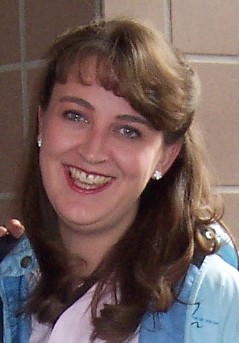 |
Karen Turpin PhD Candidate, School of Public Health, University of Alberta (UA), Edmonton, Alberta, Canada PhD Committee: Dr. Linda Carroll (UA), Dr. Ruth Ann Marrie (University of Manitoba), Dr. Penny Smyth (UA), Dr. Michael van Manen (UA). Thesis Title: Understanding Resilience Among Persons with MS Description: The purpose of my thesis is to explore the concept of resilience within the MS population, by using both quantitative and qualitative methods. I developed a cross-sectional survey to assess resilience amongst persons with MS, and to determine what sociodemographic, clinical and psychosocial factors are associated with greater resilience. 385 persons with MS completed the survey. The results will be presented at this conference. I also conducted in-depth individual interviews with 15 persons with MS to understand what resilience means to them. The transcripts from the interviews are currently being analysed. Hopefully the findings from this quantitative and qualitative research will help in identifying strategic ideas for how to strengthen resilience among those living with MS. Collaborations:
In addition to working with my thesis committee members (as listed above), I am also collaborating on a fatigue self-management project. My collaborators include Dr. Marcia Finlayson, Queen’s University, and Dr. Nadine Akbar, post-doctoral fellow (Queen’s).
Previous to embarking on my PhD, I worked as MS research / clinic nurse at the MS clinic in Edmonton, AB, Canada. My Masters’ thesis work centred around the health-related quality of life of persons with RRMS.
|
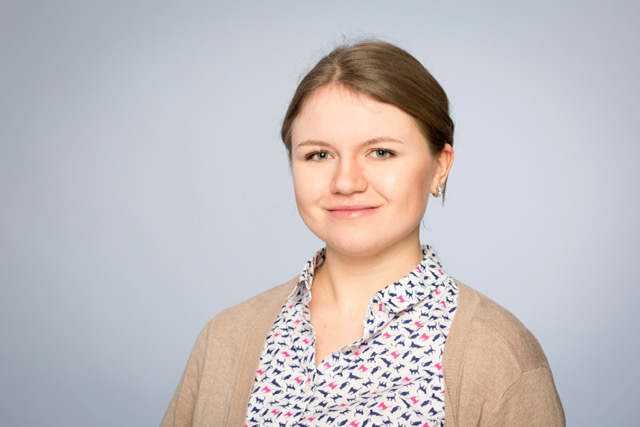 |
Anna Barabasch PhD student at University Medical Centre Hamburg-Eppendorf, Germany. Project title: Patient Experiences of Multiple Sclerosis Therapies (PExMS) - Development and Evaluation of a Website with Patient Experiences of Multiple Sclerosis Therapies PExMS-project has the following aims: 1) To assess, which personal experiences persons with multiple sclerosis (pwMS) have with the disease in their daily life and with therapies (qualitative interview study); 2) to create a website with videos, audio and written excerpts on the basis of the qualitative data 3) to evaluate the website for acceptance, relevance and usability (focus group study) and 4) to assess, whether patient experiences of persons with multiple sclerosis help other patients to improve knowledge, affective forecasting and decision preparation in the decision-making process for or against a therapy (randomised controlled pilot trail). At the moment, I’m in the process of conducting 40-50 semi-structured interviews with persons with RRMS throughout Germany and analysing the data thematically using deductive and inductive categories. I hope that I will be ready with interviewing at the beginning of 2019 and will be creating a website with patients’ experiences, structured in topics, which are illustrated with video, audio and text files. Collaboration: An advisory panel of seven members (MS patients, researchers and neurologists) mentors PExMS. Future plan: Besides realising the project’s steps/aims, I would like to be involved mainly in qualitative research about different topics concerning MS. |
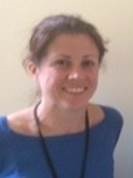 |
Rachel Dennett Physiotherapist and research assistant at Plymouth University, UK. The area I am focusing on for my PhD is that of supporting people with progressive neurological conditions to maintain physical activity (PA) in the long-term. An issue that was highlighted by people with MS involved in each of two qualitative sub-studies I have recently been involved in is the importance of having opportunity to discuss their hopes and expectations of an intervention, especially those people whose condition was deteriorating. This raised the question of whether and how discussions about maintaining PA are facilitated in clinical practice and forms the basis for the next stage of my studies. I plan to conduct focus groups with people with progressive MS and physiotherapists, exploring their experiences and views of incorporating discussions about maintaining physical activity with someone whose condition is deteriorating. |



